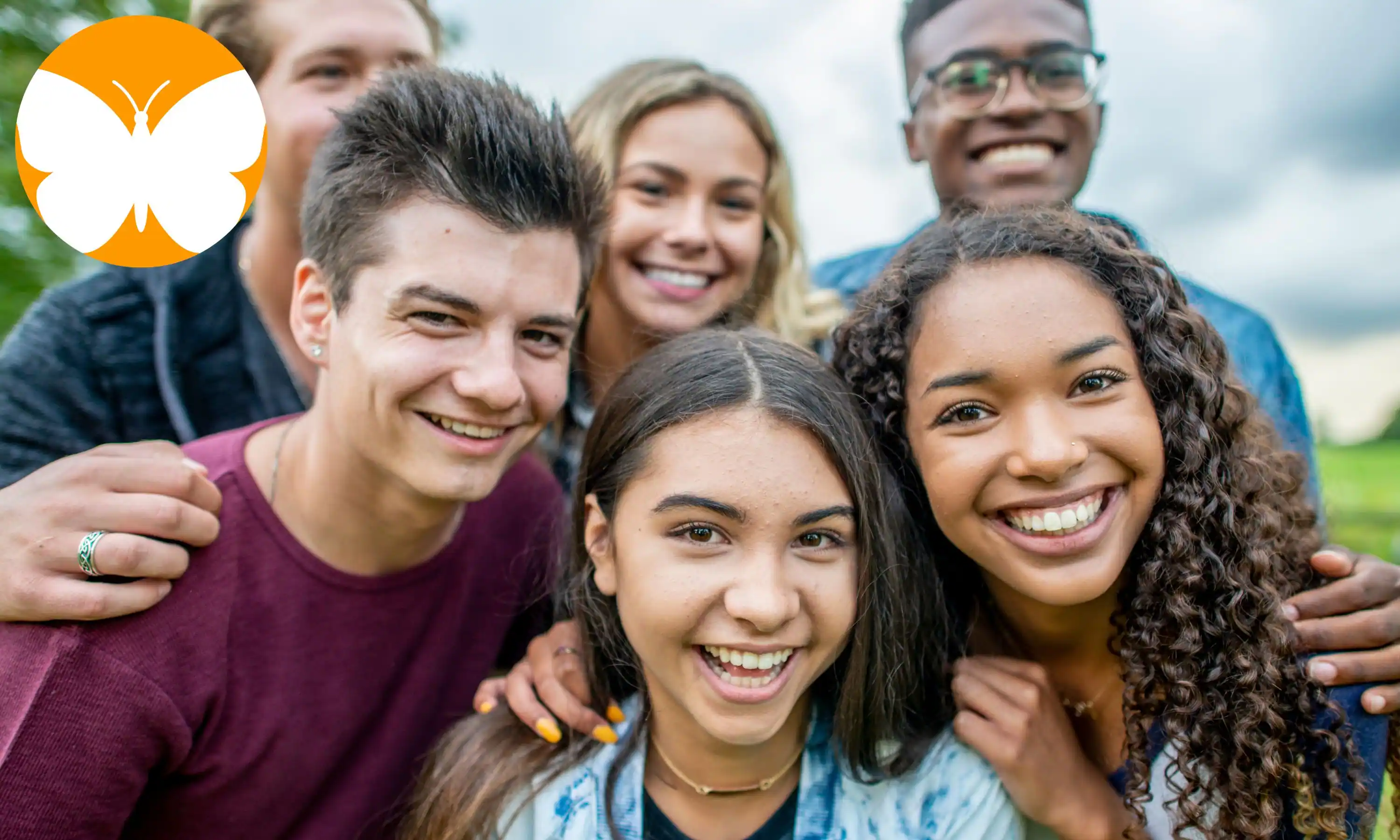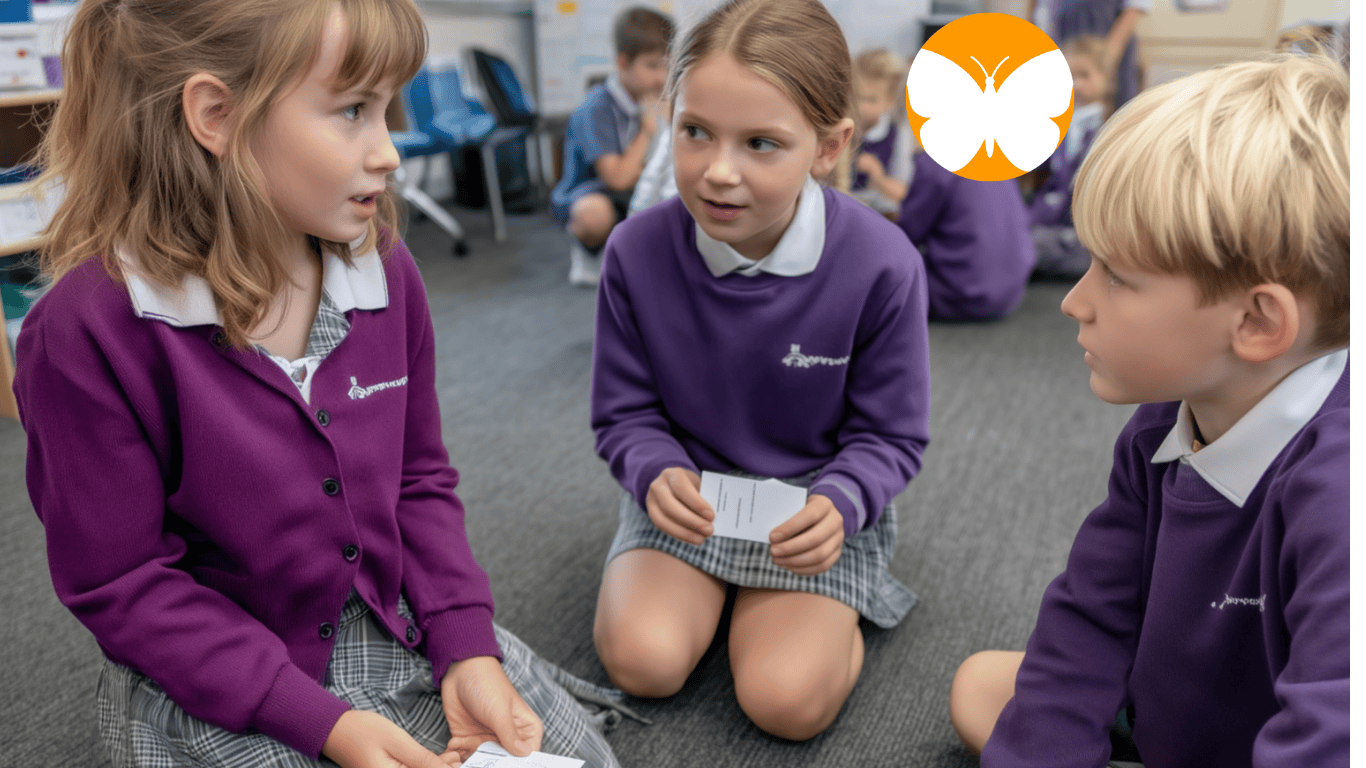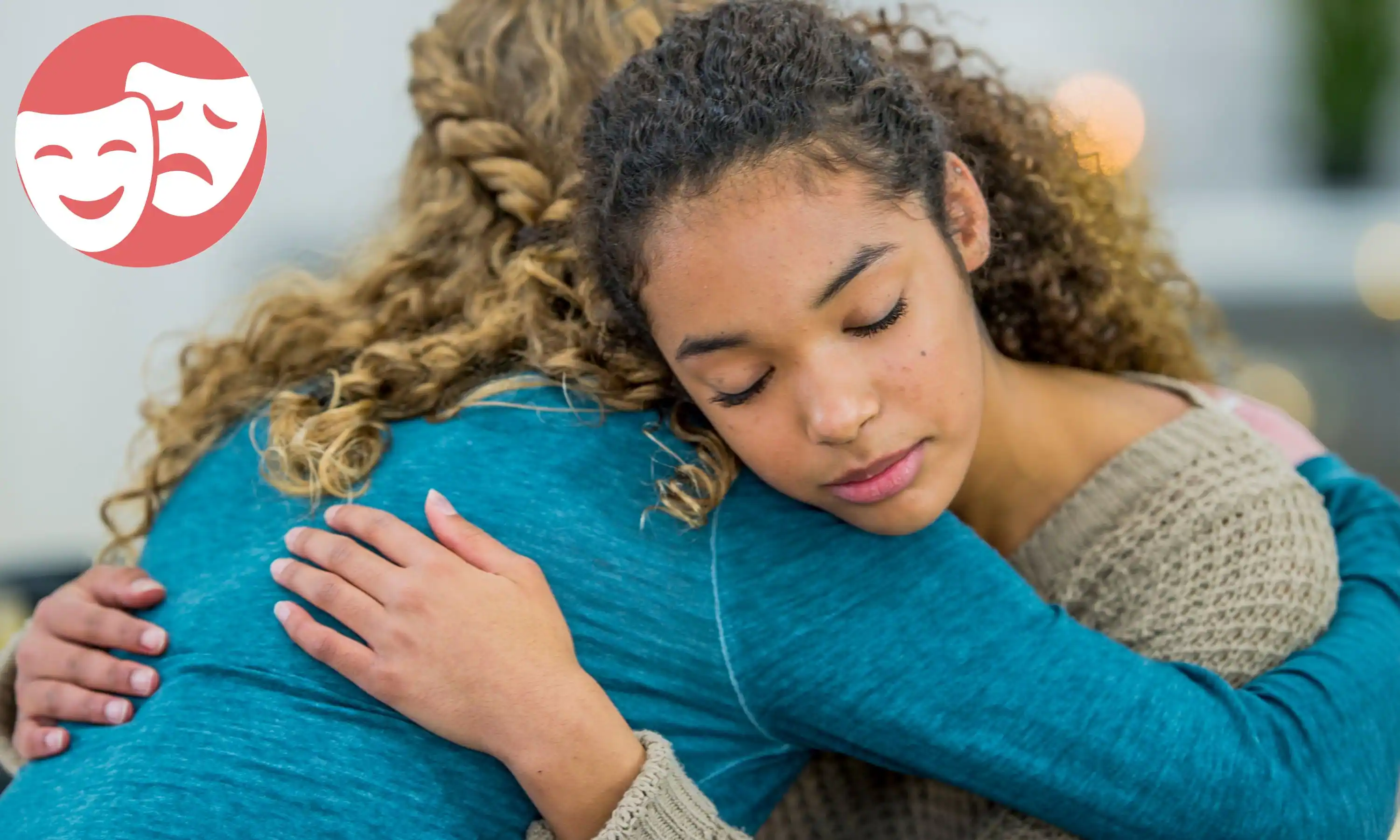Bring Peace to Your Child’s
New Family Life
Foster empathy, connection, and confidence as family dynamics evolve.
Thriving in a Blended Family
Designed with educators, backed by psychology, and
easy to integrate into your school’s
routine.

Plan Objectives
 Developing Empathy
Developing Empathy
Help children understand and appreciate different perspectives in a blended family.
 Strengthening Compromise
Strengthening Compromise
Teach negotiation and teamwork skills to build positive family relationships.
 Encouraging Accountability
Encouraging Accountability
Support children in taking responsibility for their actions and behaviors.
 Managing Emotions
Managing Emotions
Equip children with tools to identify and regulate emotions effectively.
Why This Plan?
This plan addresses the following challenges by developing targeted skills

My child does not care about others’ perspectives

My child can not compromise with friends or siblings

My child makes excuses for their behavior

My child is unaware of their own emotions
My child does not care about others’ perspectives
How This Plan Helps
Helps children recognize and respect the feelings of family members.
Skill: Empathy
Course: Cultivating Empathy
My child can not compromise with friends or siblings
How This Plan Helps
Teaches negotiation and compromise to promote peaceful family interactions.
Skill: Conflict Resolution
Course: Conflict Resolution Foundations
My child makes excuses for their behavior
How This Plan Helps
Encourages reflection and accountability for actions.
Skill: Self-Awareness
Course: Exploring You: A Journey to Self-Awareness
My child is unaware of their own emotions
How This Plan Helps
Helps children understand and regulate emotions to strengthen relationships.
Skill: Relationship Management
Course: Relationship Building Basics
01 Understanding Different Perspectives
Helps children appreciate the viewpoints of step-siblings, parents, and extended family members.
02 Resolving Family Disagreements
Provides tools for children to negotiate and find peaceful solutions to conflicts in a blended family.
03 Taking Responsibility for Actions
Encourages children to own their actions and make positive behavioral changes.
04 Strengthening Family Bonds
Builds relationship skills to help children form meaningful connections with new family members.
Real-Life Applications
How this plan's skills apply to real-world scenarios for everyday success
Courses Included


Relationship Building Basics
Social
Relationship Management
Course Details:
Modules: 4 |
Lessons: 33
Trust: Develop the ability to build and maintain trust, strengthening supportive connections.
Benefits: Understand how healthy relationships enhance well-being and personal growth.


Cultivating Empathy
Social
Empathy
Course Details:
Modules: 4 |
Lessons: 32
Empathy Development: Develop empathy by understanding and responding to others' emotions and views.
Communication Skills: Enhance skills with active and empathetic listening techniques.


Conflict Resolution Foundations
Social
Conflict Resolution
Course Details:
Modules: 4 |
Lessons: 31
Strategies: Develop approaches to handle conflict constructively through communication and empathy.
Emotions: Manage emotions in conflict using mindfulness and positive self-talk.


Exploring You: A Journey to Self-Awareness
Emotional
Self-Awareness
Course Details:
Modules: 4 |
Lessons: 32
Emotional Intelligence: Recognize and manage emotions to improve mental well-being.
Self-Awareness: Understand how personal values influence decision-making.
Meet the Course Creators

Dr. Kymberli Barker
Relationship Building Basics
Conflict Resolution Foundations
Exploring You: A Journey to Self-Awareness
Dr. Kymberli Barker
Relationship Building Basics
Conflict Resolution Foundations
Exploring You: A Journey to Self-Awareness
Dr. Barker is the mother of two fantastic young men, and they are her priority in life. She holds degrees in biochemistry, math, forensics, and psychology. She is a consultant and a professor at multiple colleges, including the Citadel, and Johns Hopkins Center for Talented Youth. She spent fifteen years in public education, prior. Her personal focus is child advocacy and she developed the Guardian ad Litem/(GAL)/CASA program for the Eastern Band of Cherokee Indians. She is tribally and state sworn as a GAL. Her favorite thing is being a mom.

Ali Dareneau
Relationship Building Basics
Conflict Resolution Foundations
Ali Dareneau
Relationship Building Basics
Conflict Resolution Foundations
Ms. Dareneau is an English teacher with dual degrees in Psychology and English Education, she enjoys helping students reach their potential, especially when it comes to English Language Arts. With over 16 years of classroom experience and working with education-based companies, she brings creativity and enthusiasm to the classroom and beyond. She earned a Bachelor's degree in Psychology in 2007 and completed her Masters's degree in English Education in 2013 which have both shaped her into the passionate educator she is today. Her professional experience as an English teacher, curriculum designer, and writer demonstrates her passion for reading and writing and solidifies her belief all students can strengthen their reading and writing skills no matter what level they begin their journey.

Mandy Mahr
Cultivating Empathy
Mandy Mahr
Cultivating Empathy
Mandy Mahr is a Masters Level educator who served in public schools in the United States for 15 years before becoming an online tutor to schools with at-risk students, providing social emotional support as well as skill recovery in reading and writing. She is also a consultant for content creation to provide guidance to organizations wanting to engage and employ GenZ. With the technological advances the world has seen in just the last twenty years, it is her goal to train learners to be ready for jobs that don't exist yet. She is passionate about helping learners develop social emotional skills before reaching the workforce.
Sample Lesson Preview 
Relationship Building Basics
Benefits of Healthy Relationships
Benefits of Healthy Relationships
It is essential for our well-being to cultivate and maintain healthy relationships. Benefits of healthy relationships include:
- Emotional Support: Our friends, family, and acquaintances give us the supportive network we need. We can share joys, sorrows, and challenges together. Emotional support from loved ones helps us navigate life's ups and downs.
- Personal Growth: Relationships offer opportunities for personal growth and self-reflection. Interacting with others helps us develop empathy, understanding, and emotional intelligence.
- Health and Happiness: Healthy relationships contribute to overall well-being. We can have increased happiness, reduced stress levels, and improved mental and physical health.
Please think of your relationships. Please take a minute to journal the benefits you gain from people in your life.
Sample Lesson Preview 
Cultivating Empathy
Learning Sympathy
Learning to Show Sympathy
James is a kind kid, but sometimes he doesn't show sympathy, probably because he doesn't know what it means yet! In this section James will interact with his brother, Miles, his parents, and his friend Corrie to learn what it means to be sympathetic towards others.
Learning to show sympathy in your relationships can help build trust and strengthen your connection.
If you are like James and you aren’t sure what sympathy is, this scene will help you!
Sample Lesson Preview 
Conflict Resolution Foundations
Causes of Conflict
Emotional Hot Buttons
It can be challenging dealing with emotional hot buttons, but there are several ways to manage them effectively.
First, identify your hot buttons by being aware of situations that make you upset or angry.
Second, calm your emotions with deep breathing or counting to ten when you feel highly emotional.
Third, talk about your feelings with a trusted friend, teacher, or parent; sharing your emotions can help you feel understood and less alone. Try to always speak from your own perspective. Do this by using “I” statements, like “I feel upset when…” to express how you feel.
Fourth, stay active through sports or hobbies to release built-up stress.
Fifth, keep a journal to write about your feelings, which can help you understand and manage them better.
These strategies can help you handle emotional hot buttons in a healthy way and improve your overall well-being.
Sample Lesson Preview 
Exploring You: A Journey to Self-Awareness
Thinking about Thinking
Thinking About Thinking
-
Self Awareness involves recognizing aspects of who you are as a person. This includes what you think and feel, how you react, and importantly, why.
-
A good practice in developing self-awareness is focusing on your thoughts. What are you thinking? When do you have certain thoughts? Why do you have these thoughts? Are they productive or harmful?
-
We will begin with thinking about thinking. Our brains are the greatest supercomputers ever created. We have so many thoughts and we process them so quickly we are often unaware of their existence.
-
By learning to think about thinking we begin to focus on our thought life, which ultimately becomes our real life.
